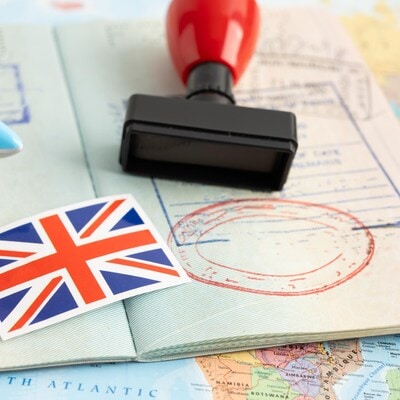The UK government has launched a national initiative urging all migrants, including a large number of Indians, to switch from physical immigration documents to electronic visas. The move is part of the country’s plan to fully digitise its border and immigration system.
Immigrants who use biometric residence permits (BRPs), visa vignette stickers in their passports or biometric residence cards (BRCs) as proof of their immigration status will have to switch to electronic visas starting next year.
This change is being implemented in phases and many BRPs will expire at the end of 2024. Migrants will now access their immigration status online by creating a UK Visas and Immigration (UKVI) online account.
The Government urges immediate action
Seema Malhotra, the UK Home Office’s Minister for Immigration and Citizenship, who is of Indian origin, stressed the urgency of the transition. “Anyone with physical immigration documents is urged to take steps now to switch to an e-visa, and I want to reassure those who need it that free advice and support is available,” she said.
The eVisa acts as a digital record of a person’s immigration status, detailing the conditions of their stay in the UK. It replaces physical documents and offers migrants a more secure and convenient way to prove their status to employers, landlords and educational institutions. The eVisa does not change the conditions of the visa, but it simplifies the verification process.
What does this mean for international students?
From September 2024, international students who enrol at UK universities for the September 2024 or January 2025 period and apply for their student visa before 1 November 2024 will continue to be eligible for a first-entry student visa. However, these students will need to change to an e-Visa on arrival through an online process facilitated by the Home Office.
This transition is crucial to ensure that students can demonstrate their immigration status whilst in the UK.
Who needs to switch to an eVisa?
Current students:Those with a BRP visa expiring on 31 December 2024 must switch to an e-Visa. They can create a UKVI account and access their e-Visa straight away, without waiting for a UKVI invitation.
New students:People arriving in the UK for the period September 2024 or January 2025 on a permanent residence permit will need to change to an e-Visa after their arrival. The Home Office will contact them to complete this process.
How to make the transition to a UK e-Visa
Below is a step-by-step guide for immigrants transitioning to the UK eVisa system:
1. Create a UKVI account
Visit the UKVI website and create an account. You will need:
A smartphone for identity verification.
A mobile phone number and an email address.
Your BRP card or a valid passport with your BRP number or visa application number (GWF or UAN).
2. Confirm your identity
Use the UK Immigration ID Check app to verify your identity. This step will link your eVisa to your UKVI account. After verification, you will receive an email confirming your eVisa access.
3. Access your eVisa
Log in to your UKVI account to view and manage your e-Visa. This account allows you to share your immigration status with employers, landlords or educational institutions as required.
eVisa transition timelines
For new students: Those who apply for a student route visa before 1 November 2024 and have previously been granted a student route visa must switch to an e-visa upon arrival. If the transition is not completed, difficulties in proving immigration status may arise.
For current students: Those with BRPs expiring on or before 31 December 2024 should create a UKVI account and access their eVisa immediately, without waiting for a formal notification.
Exceptions and benefits of eVisas
Certain groups are exempt from the e-visa requirement. If you are staying in the UK for less than six months, you are not required to change to an e-visa. In addition, people who have been granted immigration status in the Channel Islands or the Isle of Man are also exempt. Diplomats and other people exempt from immigration control, such as those with the “right of abode”, do not need to make the transition.
From a security perspective, e-visas offer greater protection as they cannot be lost, stolen or altered. They also eliminate the hassle of carrying physical documents, making it easier to verify immigration status. The transition to an e-visa is free of charge.
First published: September 20, 2024 | 16:33 IS
Disclaimer:
The information contained in this post is for general information purposes only. We make no representations or warranties of any kind, express or implied, about the completeness, accuracy, reliability, suitability or availability with respect to the website or the information, products, services, or related graphics contained on the post for any purpose.
We respect the intellectual property rights of content creators. If you are the owner of any material featured on our website and have concerns about its use, please contact us. We are committed to addressing any copyright issues promptly and will remove any material within 2 days of receiving a request from the rightful owner.

